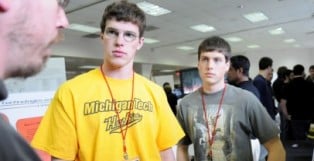Essential Education: Essential Ability Alignment Survey
The Essential Education Implementation Assessment Working Group is searching for instructors who are teaching General Education courses to fill out a brief survey.
Completing this survey will help our working group accomplish three objectives:
- Get a sense of your interpretation of the Essential Education learning outcomes (aka Essential Abilities or EAs), as currently defined.
- Understand how current General Education courses support EAs in terms of content, activities and/or assignments.
- Gather your suggestions for revision of the EA definitions for clarity.
Thank you for your assistance. This information will help guide plans for supporting and assessing EAs in courses and across the program. Faculty will have other opportunities to provide input throughout the process of developing Michigan Tech’s Essential Education program.
Estimated time to complete the survey is 10-15 minutes. We greatly appreciate your time and contributions to the building of this student-focused initiative.

